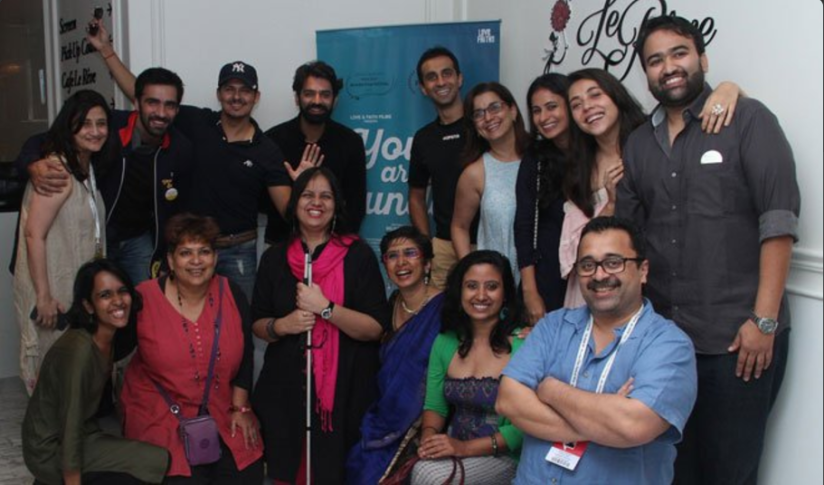
This member story was featured in the 2016 APC Annual Report, as part of our work on access.
Sometimes, a tweak to technology can open your eyes. To what you never saw. So in October 2016, when the Mumbai International Film Festival invited Point of View to collaborate, we suggested a special screening: for those without sight.
Globally, there are more than 285 million people with visual impairment, 90% of whom live in low-income settings. Most of them rarely see movies – simply because most films are not audio-described, that is, they don’t come with an audio narrative throughout the film, especially in the silent bits, where there is no dialogue but some action takes place. Imagine yourself in their place. You’re seated at your laptop, caught in the middle of a romantic comedy, when suddenly, there’s silence. You hear scraping sounds and an occasional rustle or moan. But how do you, without vision, know what’s happening on screen? You don’t know.
Audio-description is the technology that fills this gap. It’s a simple technology that copyright complicates, because the film’s legal owner – the producer – has to permit the addition of this audio-described track to streamed versions, theatrical screenings, etc.
When the producer of Tu Hai Mera Sunday, a Hindi film about five football players, gave Point of View permission to add an audio track, we were ecstatic.
And so it came to pass that for the first time in its history, the Mumbai International Film Festival was able to show a film to those who can’t see. And to those who can see, who wore eyemasks and experienced it as if they couldn’t.
Image: POV team with film team after the special screening.